[Field Report]Working with the UNFPA (United Nations Population Fund) to Support Women’s Empowerment in Samburu County, Kenya
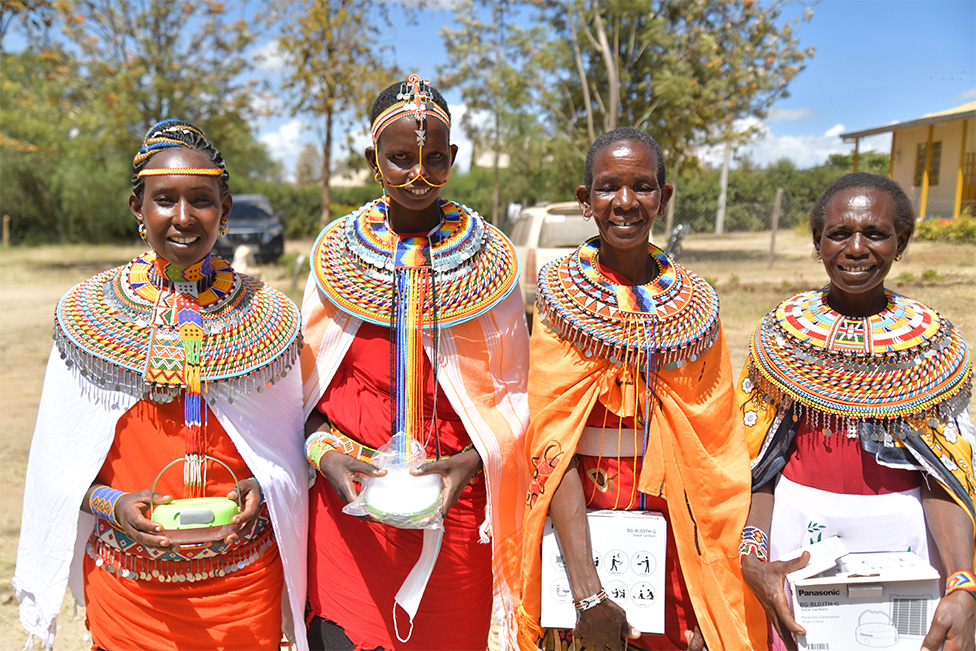
In rural, off-grid areas of Kenya, old customs still remain.
Wearing traditional folk costumes and jewelry, the locals welcome visitors with singing and dancing in large numbers, creating a fun and joyous scene that makes people truly feel welcome. But not all traditional customs are as heartwarming and good. There are also some customs that should be reformed in modern times, such as child marriage and FGM (female genital mutilation). Being pregnant while one’s body hasn’t fully matured presents a high risk for both mother and child, and raising children at such a young age deprives girls of education and other opportunities. FGM can also involve surgical removal with unhygienic blades, resulting in issues such as massive bleeding and suppuration (formation of pus). It also inflicts significant damage to the body and poses risks to both the physical and mental health of those subjected to this practice. FGM is now legally prohibited in Kenya. And while this custom has decreased in urban areas, it still persists in rural areas.
In collaboration with the UNFPA, which has been dealing with this issue, we are participating in projects that support women’s empowerment by donating solar lanterns that will allow women to escape poverty and reduce these customs from 2022.
And so, to respond to a reality that was unimaginable to us, we, along with members of the UNFPA, went to an area where these customs are being practiced.
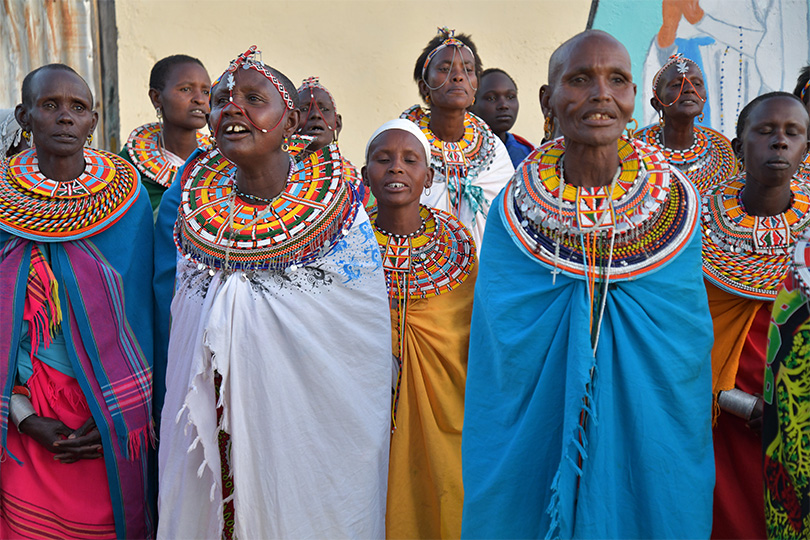
Poverty is the primary cause of fundamental issues
We were confronted by a simple question. Why won’t these customs disappear if they’re prohibited by law?
Certainly, customs and attitudes that have long been practiced in the community do not change easily. Even if a woman doesn’t want it, a man will tell her that FGM is a condition for marriage, and the woman’s parents want her to marry him. Poverty is another factor that keeps harmful customs alive. There are no prominent industries and no stable jobs. When a family marries off their daughters, they are given livestock as betrothal gifts. And because these gifts support families, there is an unchanging environment in which poor families marry off their daughters at an early age and force FGM on them.
Creating Opportunities with Solar Lantern Lights
To address these issues, the UNFPA supports the production and marketing of local ornamental beadwork as a source of income for women. However, because this is an off-grid area, it is nearly impossible to do this beadwork at night. Therefore, we are donating solar lanterns that would allow these women to produce this work at night, increasing opportunities for income improvement, and we are initiating activities in support of women’s empowerment.
We also distribute solar lanterns to adolescent boys and girls. This also allows them to study at night, increasing their educational opportunities, which then allows them to deepen their understanding of these customs in addition to their regular studies.
This project truly brightens their future with light.
These customs still remain in Samburu and West Pokot Counties
The prevalence rate for FGM in Kenya is 21%, compared to 86% in Samburu County and 74% in West Pokot County based on Kenya Demographic Health Survey 2014. Meanwhile, the electrification rate is only 9% for Kenya as a whole but only 5.8% in Samburu County and 3% in West Pokot County. The inconvenience of not having access to electricity is a factor that keeps people from escaping poverty.
In this project with the UNFPA, 2,000 solar lanterns will be donated to Samburu and West Pokot counties, places with no electricity and where people have retained many old customs. 500 lanterns will be donated to women who do beadwork, and 1,500 lanterns will be donated to children’s schools.
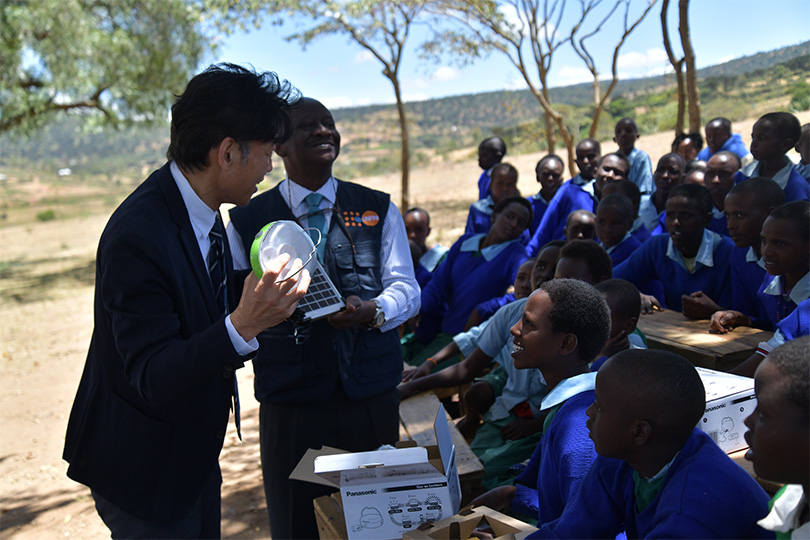
The reality for women raising children
We actually spoke to a woman living in an off-grid area who said she used to perform FGM on girls. She has nine children to raise, but she had lost her husband and had very little income, so she made her income from FGM, for which she earned 300 shillings per person. She told us she would sometimes do two people a day. She said she knew it was prohibited by law, but she had to support her children, so she had no other choice in the matter.
She now works as a beader, earning about 8,000 shillings a month with support from an assistance program, and she says she’s getting by.
She told us that she makes beadwork in a room that is about 3.3 square meters large and has a small window, but the room can still be dark even in the daytime. And so we gave her a lantern, which she actually used. While we interviewed her, she had a hard look on her face and didn’t smile, but when the light of the lantern lit up the room, she was very surprised and laughed like a child while remarking that this could now allow her to make a lot of jewelry, even at night.
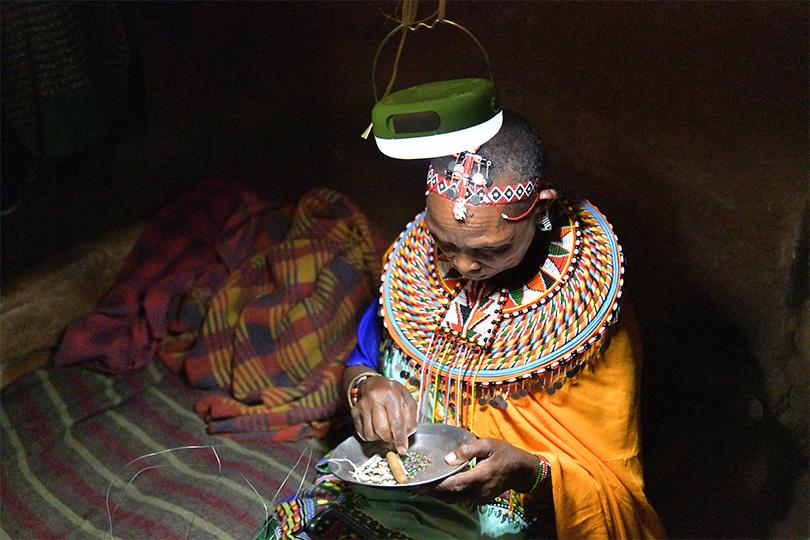
A project supported by many partners
We have many partners on this project. From the Kenyan government, this project involves the participation of the State Department of Gender, the Anti-FGM Board, and the Ministry of Tourism. Local program support is also being provided by the Kenya Red Cross Society and World Vision Kenya. In partnership with the UNFPA, they are making full use of their strengths to engage in support activities. This project is large-scale in every sense of the term and is what you would expect from a UN-led project.
We are grateful that our company is able to participate in this kind of project by offering lights. I would also like to express my heartfelt gratitude to Ms. Arai and Ms. Dinah of UNFPA, Dr. Chris, the Deputy President of UNFPA, and all UNFPA members for giving us the opportunity to participate in this project and for the variety of support they gave us while on location.
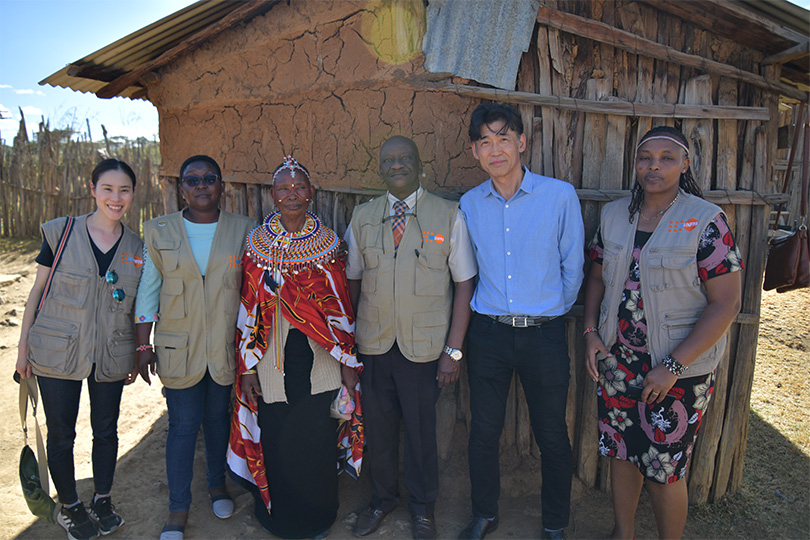
[Related Sites]
Article from the UNFPA Kenya
KTN News Kenya
The website for UNFPA






